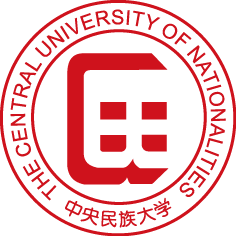

Situated in the Haidian District which hosts many universities in the capital city of Beijing, MUC is neighbored by the National Library to its south, and the Zhongguancun Hi-Tech Zone to its north. The campus is quiet with traditional elegancy, full of academic atmosphere, and unique with ethnic minority cultures. The forerunner of MInzu University of China is the Institute for nationalities founded in Yan’an in September 1941. The Central Institute for Nationalities (CIN) was formally established in June 1951 in Beijing, with Mr. Ulanhu, the then Vice Premier of State Council, as the first president. In November 1993, the name of the institute was changed into MInzu University of China. Minzu University of China (MUC), under the direct jurisdiction of State Ethnic Affairs Commission (SEAC) and the joint administration of Ministry of Education (MOE) and Beijing Municipal People’s Government, is the only institution of higher education that boasts a faculty and students from all the 56 ethnic groups in China and that enjoys priority support from the national government through both 211 and 985 programs. MUC has been playing an important role in the Chinese higher education system and undertaking special missions. As the national research base for Chinese ethnic issues, the training center for ethnic minority talents, and the platform for presenting ethnic culture quintessence, with its influence among the ethnic minorities and ethnic regions, MUC showcases the diplomatic importance in communicating and interacting with the world. With more than sixty years of development, MUC has formed a discipline system with a balanced development among humanities, social sciences, natural sciences and art, a system with ethnic studies as its salient uniqueness. At present, there are 63 undergraduates programs in ten major categories of disciplines covering philosophy, economy, law, education, literature, history, science, engineering, management and arts. Among them, ethnology, Chinese ethnic minority languages and literatures, history (history of Chinese ethnic minority), Marxist theories and policies of ethnic minorities, anthropology , religious studies, sociology, economy(Chinese ethnic minority economy), Chinese ethnic minority arts (music, dance and fine arts), education (Chinese ethnic minority education), public administration and ecology are comparatively strong and influential home and abroad in terms of teaching and research. At present, MUC offers 151 Master Programs and 42 Doctoral Programs. MUC admits students from the 31 provinces, municipalities, autonomous regions, Taiwan, Hong Kong and Macao. Currently the full time student body totals about 15,737, among whom about 60% are from ethnic minorities. MUC boasts a faculty of high quality. At present there are 2,137 faculty and staff members and 1,197 full-time teachers, including 695 professors and associate professors, amounting to 58% of the total fulltime faculty.




